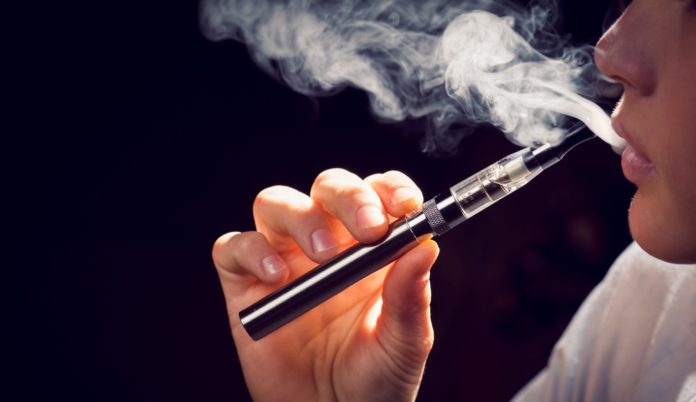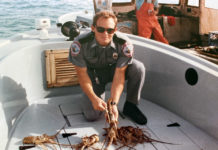E-cigarettes, vaping, the JUUL – all new terminology in our American lexicon and so very important to know. Why? The trend in inhalant products is taking teenagers by storm and the future is looking pretty smoky, once again. America has been fighting teenage tobacco use for decades and this is the next generation of addictive products and devices to lure the youth. And it is big, big business, an estimated $10 billion industry in 2017.
E-cigarettes supposedly were designed to be a healthier option for tobacco products. The devices heat a liquid into an aerosol to be inhaled, delivering smaller doses of nicotine than in a cigarette and bonus, there is no second hand smoke. But is it safe? Folks, nicotine is nicotine and addictive. For example, a JUUL device heats a JUULpod which contains 0.7ml with 5 percent nicotine by weight, approximately equivalent to 1 pack of cigarettes or 200 puffs. Remember thinking a Virginia Slim wasn’t that bad due to its size?
And the theory that vaping is safer? No, there is potential for carcinogenic exposure, according to National Center for Biotechnology Information, because in heating the liquid with metal coils, “Our findings indicate that e-cigarettes are a potential source of exposure to toxic metals (chromium, nickel, and lead), and to metals that are toxic when inhaled (manganese and zinc).” Basically, customers are potentially inhaling lead to get nicotine and that doesn’t sound too smart either.
So what attracts the kids? E-cigarettes are easy to hide; the newest version, the JUUL, looks like a flash drive, not a cigarette at all (kids refer to it as “juuling”). E- cigarettes can be bought online, even eBay, to avoid Florida’s legal age limit of 18 and are relatively affordable ($49.99 for a JUUL starter kit). And for added attraction they come in fun flavors like cinnamon, chocolate, mango and fruit tutti. It’s a far cry from stealing your grandfather’s filterless Camel and passing out from the taste. Technology simply streamlined addictive substance use for kids and it’s worked.
What does the FDA have to say? A lot, thankfully. Enough studies have proven dramatic rises in teen use between 2011 and 2016 to scare the government into action. FDA Commissioner Scott Gottlieb M.D. issued a statement on April 24 putting the industry on notice, the FDA is taking action against “the youth appeal.” Dr. Gottlieb wrote, “These products are also more difficult for parents and teachers to recognize or detect. Several of these products fall under the JUUL brand, but other brands, such as myblu and KandyPens, that have similar characteristics are emerging. In some cases, our kids are trying these products and liking them without even knowing they contain nicotine. And that’s a problem, because as we know the nicotine in these products can rewire an adolescent’s brain, leading to years of addiction.”
“Obviously, we are very concerned,” said Principal Christina McPherson of Horace O’Bryant Middle School. “So far we haven’t had an issue or anything on the property and we have talked to the kids about it. Hopefully, this will continue to be the case.” McPherson is keenly aware this is a nationwide problem.
Principal Amber Acevedo of The Key West High School is looking into getting more education and information to her students about its harmful effects. “We have had one instance of a student having a vaping device on campus,” said Acevedo. “There is more talk among students about it, however, not a trend of use on campus.” Disciplinary action includes being sent home or to a possible alternative education setting depending on the substance.
Being hooked on e-cigarettes isn’t any less difficult to kick than being hooked on regular cigarettes. What is old school and still works with kids? Education, vigilance and common sense – don’t smoke.
“We (FDA) share the belief that these products should never be marketed to, sold to, or used by kids – and we need to make every effort to prevent kids from getting hooked on nicotine.” FDA Commissioner Scott Gottlieb, M.D.,
Source: https://www.redvape.com/reserva


























